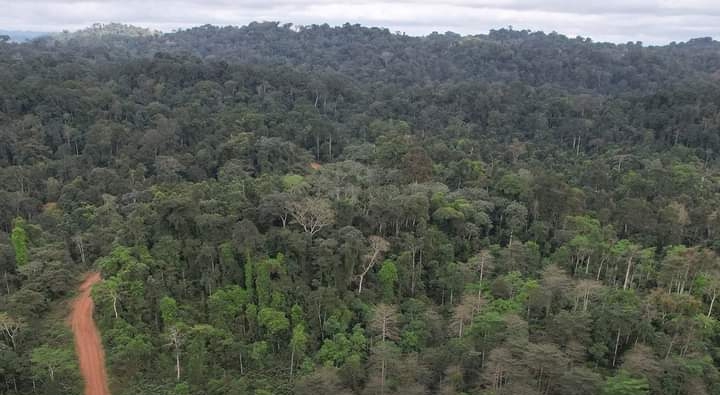In a move that has sparked both economic interest and environmental alarm, Gabon’s ruling military junta has eased restrictions on the logging of the rare and highly sought-after kevazingo tree. The new decree, announced by the council of ministers on Saturday, permits the controlled harvesting of this precious hardwood, under strict conditions, just a year after the junta took power.
The kevazingo tree, known for its exceptional density and durability, takes up to 500 years to reach its full height of 40 meters (130 feet). Its wood is highly prized in Asian markets, where it is transformed into luxury items such as chic furniture and specialty guitars. However, the tree’s slow growth and limited distribution have made it a focal point of conservation efforts, especially after rampant trafficking threatened to push the species towards extinction.
In 2018, Gabon’s previous government implemented a total ban on kevazingo logging to combat illegal trade. However, the ban included a loophole that allowed the sale and export of fallen trees that had been on the ground for at least six months or had been seized from illegal loggers. This loophole inadvertently fueled a black market, leading to further depletion of the species.
The junta’s recent decree allows kevazingo to be logged within “sustainably managed concessions” monitored through a geo-referencing system, a measure intended to prevent illegal activities and ensure that logging is conducted in an environmentally responsible manner. This system is expected to track the origin of the wood, providing transparency and accountability in the supply chain.
The decision has been met with mixed reactions. On one hand, it offers economic opportunities for local communities and the national economy, which is heavily reliant on natural resource exports. The high demand for kevazingo in international markets could bring significant revenue to Gabon, particularly in a time of political transition and uncertainty.
On the other hand, environmentalists and conservationists are expressing concern over the potential long-term impacts of the decision. The kevazingo tree’s slow growth makes it highly vulnerable to over-exploitation, and some fear that even regulated logging could lead to the species’ decline. Critics argue that the decree prioritizes short-term economic gains over the long-term sustainability of Gabon’s forests, which are among the most biodiverse in Africa.
“The risk of losing this ancient species is real,” said a spokesperson for a local environmental organization. “While the geo-referencing system is a step in the right direction, we need to ensure that the logging practices are genuinely sustainable and that the monitoring is rigorous and transparent.”
The junta has defended its decision, emphasizing that the decree balances economic development with environmental protection. According to a government statement, the new regulations aim to “promote sustainable forest management while providing opportunities for economic growth.”
As Gabon navigates its political future under military rule, the fate of its natural resources, including the kevazingo tree, will remain a critical issue.




